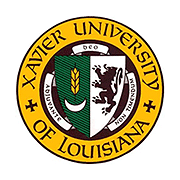Here is this week’s news of grants or gifts to historically Black colleges and universities or for programs of particular interest to African Americans in higher education.
 Alabama State University, the historically Black educational institution in Montgomery, received a five-year, $2.25 million grant from the National Science Foundation. The funds will be used to give undergraduate students the opportunity to participate in bioengineering and nanobiotechnology research. Money will be used to provide stipends and to finance travel to scientific meetings and conferences.
Alabama State University, the historically Black educational institution in Montgomery, received a five-year, $2.25 million grant from the National Science Foundation. The funds will be used to give undergraduate students the opportunity to participate in bioengineering and nanobiotechnology research. Money will be used to provide stipends and to finance travel to scientific meetings and conferences.
 Duke University in Durham, North Carolina, received a $4 million grant from the Duke Endowment in Charlotte to fund the hiring of up to six faculty scholars with expertise in African, Asian-American, or Latinx studies. Recruitment for these positions is expected to begin immediately, with new faculty appointments beginning as soon as fall 2020.
Duke University in Durham, North Carolina, received a $4 million grant from the Duke Endowment in Charlotte to fund the hiring of up to six faculty scholars with expertise in African, Asian-American, or Latinx studies. Recruitment for these positions is expected to begin immediately, with new faculty appointments beginning as soon as fall 2020.
 Historically Black Xavier University in New Orleans, Louisiana, received a three-year, $400,000 grant from the National Science Foundation for its Course Based Research Experiences program that provides research experiences in STEM fields for undergraduate students.
Historically Black Xavier University in New Orleans, Louisiana, received a three-year, $400,000 grant from the National Science Foundation for its Course Based Research Experiences program that provides research experiences in STEM fields for undergraduate students.
 Tennessee State University, the historically Black educational institution in Nashville, received a $2 million grant from the state of Tennessee to support retention efforts for high achieving students from underserved communities. The grant will provide funds for scholarships to high achieving students who would be unable to return to school without the additional financial aid.
Tennessee State University, the historically Black educational institution in Nashville, received a $2 million grant from the state of Tennessee to support retention efforts for high achieving students from underserved communities. The grant will provide funds for scholarships to high achieving students who would be unable to return to school without the additional financial aid.



